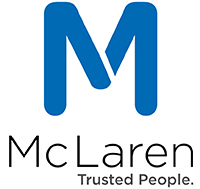You’ve probably heard that Hiring Managers and recruiters only spend X number of seconds looking at a CV before moving on to the next, which is probably not that encouraging to hear as a job seeker that’s just spent hours crafting your application!
While it’s not necessarily true that you only get a couple of seconds to impress, if your CV isn’t hitting a few key points to begin with you may well find that your application isn’t progressed to the next stage.
Every Hiring Manager or Recruiter likely has their own process for determining which CV’s are given more consideration as part of the recruitment process. To help your application get the attention it deserves, here’s a breakdown of what our Recruitment Consultants notice first in your CV:
Number 1: Layout
Our team were unanimous in this; the first thing guaranteed to be noticed in your CV is the layout!
Whether it’s trying to cram too much information into the space, mis-matched and unusual fonts or the formatting being all over the place, a CV that’s not visually pleasing to the eye is going to make it harder for your application to be successful.
The reason why the layout of your CV can play such a big part initially is down to the fact that it’s meant to be a representation of you as a candidate. If it looks messy, half-finished or has so much information the reader doesn’t even know where to start, it’s not going to reflect well on you. If it’s been a while since you’ve done one, it’s always a good idea to refresh your CV in a newer template; there’s plenty to choose from online, or you could look to engage a CV Consultant to assist you.
If you’re just starting out in your career and don’t have a lot of work experience to fill your CV with yet, that’s OK! When our consultants are recruiting for entry level or graduate roles, they’re not expecting to see an extensive job list in your CV. For an applicant with a shorter work history, they will look to the “extras” often included in a CV i.e. hobbies, extra circular activities, part time jobs or volunteer experience. If your work experience is on the shorter side, make sure you include these extras in your CV to help build a picture of your potential.
If you’re looking to build up your work experience, you can find some handy tips here.
Number 2: Your Current Job
After the initial “look” of a CV, the very next thing our consultants go to is your current (or most recent) work experience. That’s why it’s so important to list your experience in reverse-chronological order, with your most recent job at the top.
While it may be tempting to fill the first page or two with your achievements and skills, realistically the first thing that is actually going to be read on your CV is your current experience. Consultants and Hiring Managers typically only read the rest of the “stuff” if they can see an alignment between your experience and the job they’re hiring for (unless it’s an entry level job as mentioned before).
Besides not making the recruiter or Hiring Manager go through pages and pages to figure out what you’re currently doing, there’s another very good reason for a CV in reverse-chronological order; it’s essential for any applications you submit through an online portal, which these days tends to be most of them! There’s lots of great technology out there to help people process job applications, and that often involves an AI system pulling information from your CV through to their database.
Technology is great but it doesn’t always get it right. If you have your work history listed with the oldest at the top, that’s what’s going to be pulled through to the application database. While we certainly do our best to correct these kinds of errors when the system gets it wrong, the last thing you want is that job you had 20 years ago masquerading as your current one!
Side note: If you’re making a career change or think your previous job titles don’t truly reflect your suitability for the role don’t despair, this is where a cover letter comes in and why they are an important step that shouldn’t be missed! Get some more tips on how to make a targeted cover letter here.
Number 3: Tenure
The third most common thing that our consultants look to when reviewing applications is length of time you’ve held each role. Whether intended or not, excluding your tenure in each role can make it look like you have something to hide. If it’s been long enough that you can’t recall exactly what month you started a job, that’s OK but make sure you at least include the years.
The reason why this is important is that lots of short stints or gaps between jobs can raise red flags and may make an employer wary of hiring you. If you don’t have your tenure listed it’s easy to make assumptions that may not be accurate to your situation. Is it a case of just not finding the right job for you yet, or are you always on the lookout for the next best thing? Whatever the reason, from an employer’s perspective they need to find a candidate that is going to stay with them for the foreseeable future. Hiring is expensive, so if your CV makes it look like you don’t stick around for long at any one place, that may impact your chances of being considered.
In saying that, of course there can be many legitimate reasons for not staying longer in a job or having gaps between work. If you’re worried about CV gaps, we have some tips for how to address this. And don’t forget that a cover letter can help front-foot any possible concerns that might be raised by shorter job tenures.
There is so much more to consider when reviewing CV’s than the three points listed here, but when it comes to those all-important initial few seconds that a recruiter or Hiring Manager is looking at your application, it’s the layout, your most recent work experience and the length of time in your roles that gets the most attention – at first!
Looking for more job application tips? We have more information on finding new opportunities, tips to make your application stand out (for good reasons) and how to figure out your next career move!
Good luck,
Kirsty and Nikki


Leave a Reply